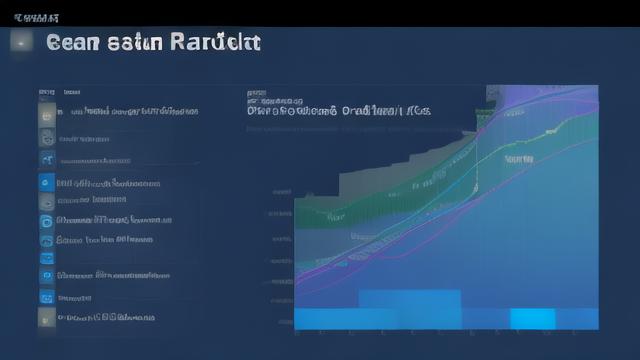MapReduce应用实例:开发MapReduce应用

背景介绍
在大数据时代,处理海量数据成为一项巨大的挑战,传统的数据处理方法已经无法满足需求,而MapReduce作为一种分布式计算模型,能够高效地处理大规模数据集,本文将通过一个实际案例——使用Hadoop实现简单的单词计数程序,来展示如何开发MapReduce应用。
项目
本项目的目标是统计给定文本文件中每个单词出现的次数,我们将使用Hadoop的MapReduce框架来实现这一目标,整个流程包括Mapper阶段和Reducer阶段。
需求分析
输入:一个或多个文本文件。
输出:每个单词及其出现次数的列表。

设计思路
Mapper阶段:读取输入文件的每一行,并将其拆分为单词,对于每个单词,输出一个键值对(单词,1)。
Reducer阶段:接收Mapper输出的键值对,并对相同键(即相同单词)的值进行累加,最后输出每个单词及其出现次数。
代码实现
Mapper阶段
package com.hadoop.mapreduce;
import org.apache.hadoop.io.IntWritable;
import org.apache.hadoop.io.LongWritable;
import org.apache.hadoop.io.Text;
import org.apache.hadoop.mapreduce.Mapper;
import java.io.IOException;
public class WordCountMapper extends Mapper<LongWritable, Text, Text, IntWritable> {
private final static IntWritable one = new IntWritable(1);
private Text word = new Text();
@Override
protected void map(LongWritable key, Text value, Context context) throws IOException, InterruptedException {
String[] words = value.toString().split("\\s+");
for (String str : words) {
if (str.length() > 0) {
word.set(str);
context.write(word, one);
}
}
}
}Reducer阶段
package com.hadoop.mapreduce;
import org.apache.hadoop.io.IntWritable;
import org.apache.hadoop.io.Text;
import org.apache.hadoop.mapreduce.Reducer;
import java.io.IOException;
public class WordCountReducer extends Reducer<Text, IntWritable, Text, IntWritable> {
@Override
protected void reduce(Text key, Iterable<IntWritable> values, Context context) throws IOException, InterruptedException {
int sum = 0;
for (IntWritable val : values) {
sum += val.get();
}
context.write(key, new IntWritable(sum));
}
}Driver类

package com.hadoop.mapreduce;
import org.apache.hadoop.conf.Configuration;
import org.apache.hadoop.fs.Path;
import org.apache.hadoop.io.IntWritable;
import org.apache.hadoop.io.Text;
import org.apache.hadoop.mapreduce.Job;
import org.apache.hadoop.mapreduce.lib.input.FileInputFormat;
import org.apache.hadoop.mapreduce.lib.output.FileOutputFormat;
import java.io.IOException;
public class WordCountDriver {
public static void main(String[] args) throws ClassNotFoundException, InterruptedException, IOException {
Configuration conf = new Configuration();
Job job = Job.getInstance(conf, "word count");
job.setJarByClass(WordCountDriver.class);
job.setMapperClass(WordCountMapper.class);
job.setCombinerClass(WordCountReducer.class);
job.setReducerClass(WordCountReducer.class);
job.setOutputKeyClass(Text.class);
job.setOutputValueClass(IntWritable.class);
FileInputFormat.addInputPath(job, new Path(args[0]));
FileOutputFormat.setOutputPath(job, new Path(args[1]));
System.exit(job.waitForCompletion(true) ? 0 : 1);
}
}运行结果
假设输入文件input.txt内容如下:
Hello Hadoop Hello World
运行上述程序后,输出结果将保存到HDFS中指定的输出目录下,内容如下:
Hello 2 Hadoop 1 World 1
FAQs
Q1: MapReduce的主要优势是什么?
A1: MapReduce的主要优势在于其易于编程、高可扩展性和容错性强,它允许开发者通过编写简单的Map和Reduce函数来处理大规模数据集,并且能够自动处理并行计算和容错机制。
Q2: MapReduce适用于哪些应用场景?
A2: MapReduce适用于各种大数据处理场景,包括但不限于数据统计与分析(如网站PV、UV等)、机器学习算法实现(如K-Means聚类、朴素贝叶斯分类等)以及图算法处理(如PageRank、最短路径等)。
以上内容就是解答有关“mapreduce 应用实例_开发MapReduce应用”的详细内容了,我相信这篇文章可以为您解决一些疑惑,有任何问题欢迎留言反馈,谢谢阅读。